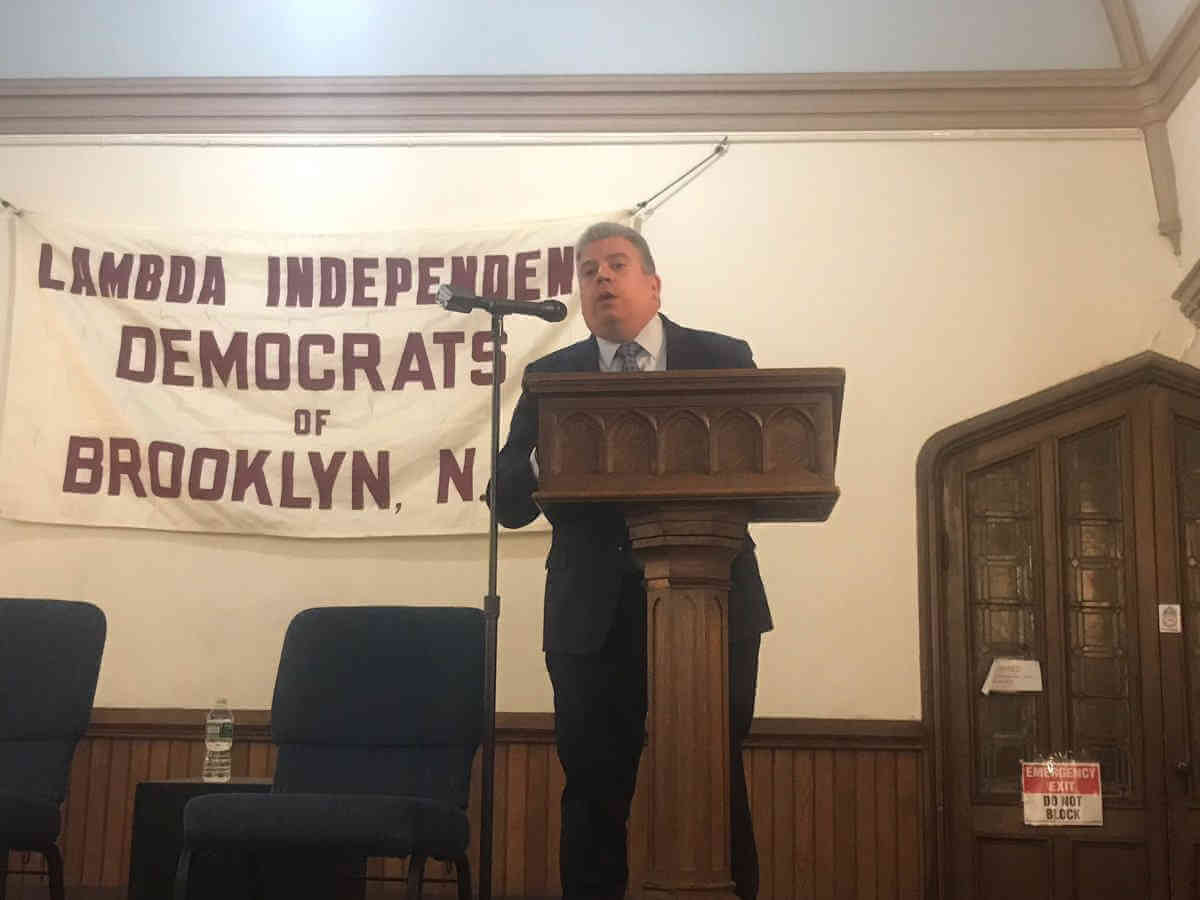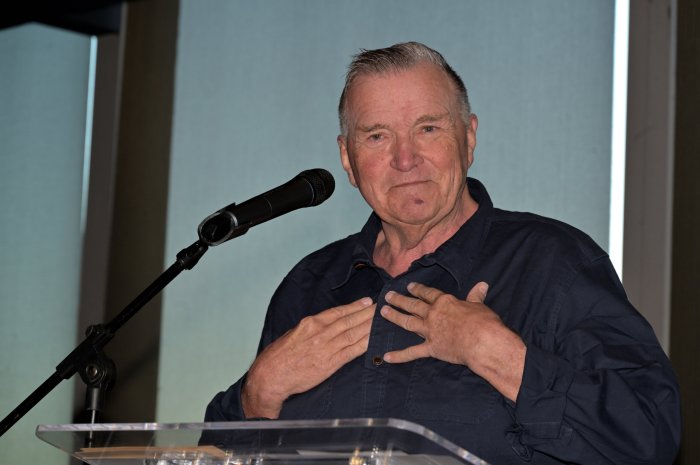Brooklyn District Attorney Eric Gonzalez voiced his support for the decriminalization of sex work on April 4 during a wide-ranging discussion with elected officials, advocates, and members of Lambda Independent Democrats of Brooklyn (LID).
The “decriminalizing queerness” event, which was hosted by LID and primarily focused on sex work but also touched upon marijuana legalization, housing rights, and other issues facing marginalized groups, additionally featured Brooklyn State Senators Julia Salazar and Zellnor Myrie as well as advocates who have experience as sex workers.
“I believe in decriminalization,” Gonzalez said in response to a question from an audience member at the First Unitarian Congregational Society in Brooklyn Heights. Gonzalez went on to explain that his office currently utilizes a process that entails enrolling sex workers in services and directing them to complete a series of steps before his office dismisses the cases altogether. He notably left the door open to further improvements in the way his office handles those cases.
Gonzalez’s clear support for decriminalization comes just weeks after he unveiled his Justice 2020 plan geared toward reducing incarceration. The Brooklyn Eagle quoted Gonzalez’s spokesperson in March as saying that the DA “expressed willingness to take a fresh look at loitering enforcement and would be open to further discussion about this issue.”
The decriminalization movement has gained steam in New York, where Salazar and her colleagues in the State Legislature, including Manhattan Assemblymember Richard Gottfried, Queens State Senator Jessica Ramos, and out gay Manhattan State Senator Brad Hoylman, have worked with DecrimNY to push legislation aimed at eradicating the criminalization of sex workers. Salazar told Gay City News that her office has seen “overwhelming support” for decriminalization, particularly from transgender sex workers and advocates.
“What’s beautiful about this new decriminalization effort is that it’s been led by LGBTQ people, many of whom are trans women,” she said.
Jared Trujillo and Jessica Raven, who have been sex workers before and are advocates in the decriminalization movement, discussed the issue during a panel discussion alongside Salazar. With Gonzalez watching intently from the crowd, the trio articulated the reasons why they believe sex work must be decriminalized in order to protect the workers — and that there are loopholes that need to be addressed.
Among the variety of topics covered, Trujillo and Raven cited existing legal barriers based on age. Raven noted that federal law labels sex workers under the age of 18 as sex trafficking victims despite that the overwhelming majority of those people don’t have a trafficker, while Trujillo added that there are cases of people who are 21 or above who are unfairly prosecuted for helping provide shelter to those who are under 18.
The shared message among the panelists was that over-criminalization, stigmatization, and lack of resources for workers in the industry creates an unstable and unsafe work environment — and all three panelists pointed out how transgender and gender non-conforming people are disproportionately affected.
“Across the city of New York, 94 percent of those arrested for loitering for the purposes of prostitution are black women, including cis and trans women,” Salazar explained. “That’s a startling number and speaks to the racial profiling and gender-based discrimination as well that goes into these arrests.”
The panelists also stressed that those who trade sex voluntarily and those who are coerced into the industry should have equal opportunity to access resources. Instead, Raven said a great deal of funds have been dedicated to anti-trafficking ad campaigns in hotels.
“But there is no discussion or investment into what happens next after you’ve spotted a trafficking victim,” she said. “There are just not enough resources.”
Gonzalez chimed in during the panelists’ Q&A session, first extending an invitation to those advocates to visit his office and further discuss the issue. He then asked what his office should do in the future to help sex trafficking victims who are coerced into the industry.
Trujillo, an attorney who represents sex workers, said in response that there is an important discussion to be had over which laws are enforced, and he raised concerns that Brooklyn has been lagging behind other boroughs in the way it polices sex work.
“One of the reasons why I chose to practice in Manhattan and did not want to practice in Brooklyn is because your office is a lot better for a lot of people,” Trujillo said. “However, one of the areas where Brooklyn does fail compared to even Queens and Manhattan is prosecuting for purpose of prostitution.”
Trujillo added that far too many sex workers end up in unsafe situations because, out of fear of prosecution, they do not feel comfortable turning to police or others for help. After the event was over, Gonzalez further elaborated upon that topic during an interview with Gay City News.
“What I heard today has me thinking that the way we are dealing with trafficking cases is not effective,” he said. “If people are afraid they are going to get arrested, maybe something outside of the justice system is better. I’m open to that.”
Gonzalez, like many other speakers during the event, drew comparisons to the marijuana legalization movement and the way that it is policed. He especially pointed to the fact that there is no longer a drawn out process for many drug cases.
“We don’t send them to Rikers and we don’t make them plead guilty to get services,” he said. “I’m very open to dealing with this in the same way.”
Gonzalez expressed a desire to continue listening in other areas, including trans-related issues. He said it was important for him attend the LID meeting because it represents an organization where folks can “have honest talk about issues involving queer and LGBT issues.”
“Many of the people who get arrested for sex work are from the transgender community, so I really need to hear from that community,” he said.



































